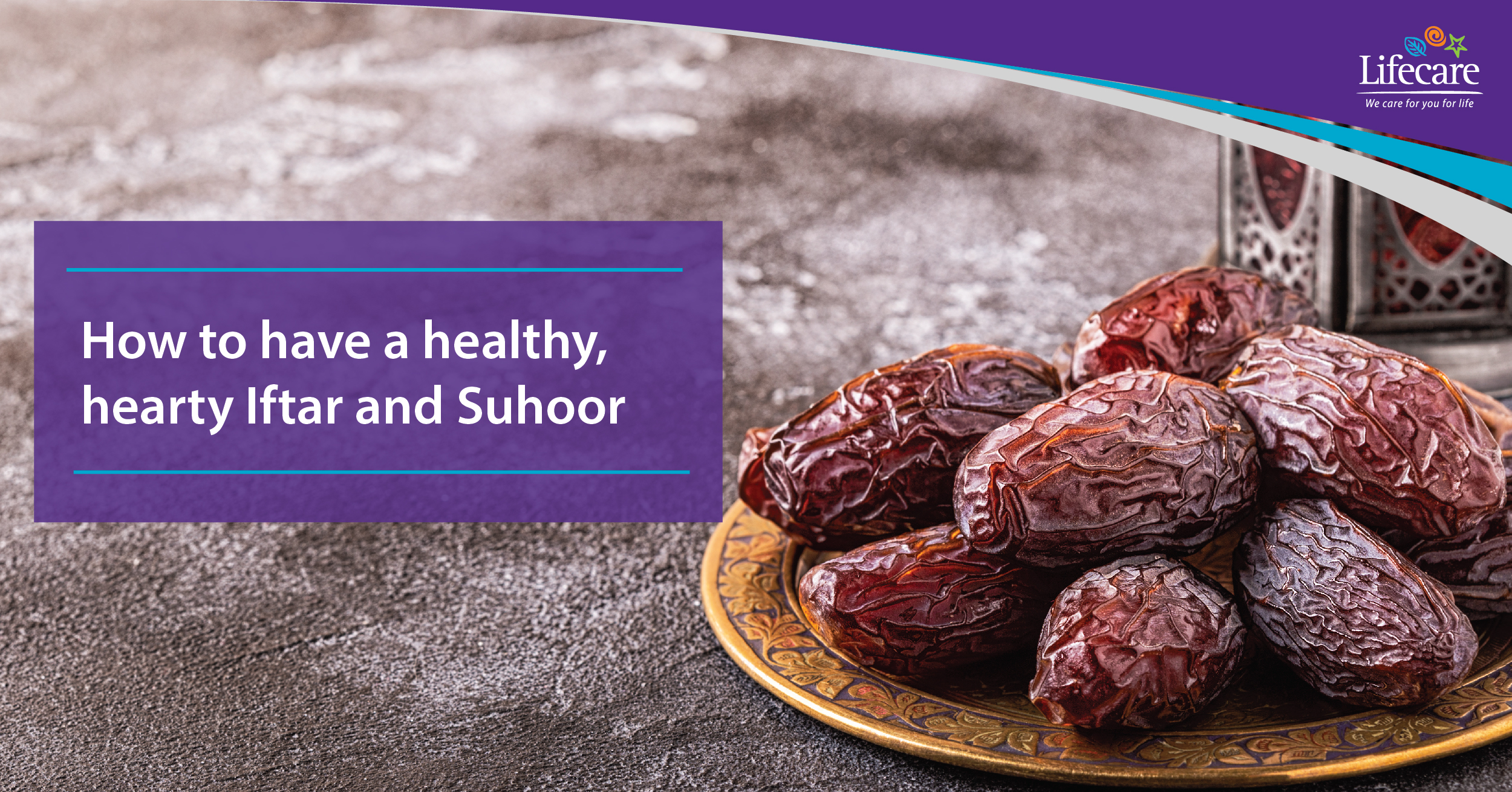Lifecare looks at the most nutrition-rich, slow-release energy foods that will assist your fast this Ramadan.
Dr Rahma Ali, a clinical dietician at Burjeel Hospital Abu Dhabi, explains that “fasting during Ramadan can improve one’s health, but only if done properly. If not, it can cause more harm than good.”
The foods we choose to eat for Iftar and Suhoor are essential for our health. We must fight the temptation to overeat and load up on carbs, but be mindful and choose wisely to have a balanced diet. These foods will keep us fuller for longer, and with higher energy levels.
Here is Lifecare’s list of the best possible foods to form the basis of Iftar and, even more importantly, Suhoor, to fuel our bodies and assist its natural functions as we fast.
Hydrating Vegetables
Cucumbers, lettuce, broccoli and spinach are ‘hydrating vegetables’ – high in fibre and water. They not only help the body feel cool and refreshed but promote healthy skin and bowel movements.
Raw nuts
Almonds, pistachios, walnuts, cashews and pecans are among the best raw nut choices, which contain good fats and are high in fibre, vitamins and minerals. Including raw nuts in your Iftar is beneficial, as they will quickly satisfy cravings after the long hours of fasting, and help you feel full and in control of your food choices to follow.
Eggs
A powerhouse of nutrition, very high in protein, and super tasty – eggs are an extremely flexible choice for Iftar and Suhoor. Switch between omelettes, frittatas, quiches, and so many more options; add a scrambled egg into sandwiches or wraps to stay fuller for longer, and never get bored.
Avocado
This incredibly nutritious fruit should be a go-to food throughout Ramadan, especially at Suhoor. Avocados are very high in fibre, release energy into the body slowly, and reduce blood sugar spikes. Eat alone or add into sauces or smoothies for a creamy nutrient-packed boost.
Quinoa and oatmeal
Quinoa is gluten-free, high in protein and essential amino acids, and usually organically grown, which has increased its popularity as a superfood. It’s also easy to add into salads, stews, casseroles, and even sweet dishes to make them more filling. Oatmeal is less flexible but includes soluble fibre, which slows digestion and helps to lower cholesterol and blood glucose – ideal for Suhoor, to keep you energised through the following day’s fast.
Fava Beans
Commonly known as ‘foul’ and easy to find in the UAE, fava beans are small, green-colored beans, that turn a deep brown once cooked. High in protein and fibre, but very low in fat, this tasty legume is a good choice to add bulk to any meal.
Smoked Salmon
This fabulous fish is an excellent source of protein, vitamins, minerals and most importantly Omega-3. Omega-3 is an essential fatty acid the body cannot make for itself, which research shows can contribute to healthy brain function and improve cardiovascular health.
Greek Yoghurt
Greek yoghurt offers double the amount of protein as regular yoghurt, which is what will help you feel fuller for longer. It is packed with probiotics for good gut health, low in carbohydrates, hydrating, and can be incorporated into smoothies if you don’t like it alone.
Being in this part of the world, we have the luxury of accessing all these fresh and healthy foods from the local grocery shop.
Lifecare wishes you and your family the blessings of the month of Ramadan.
Sources: Gulf News, The National, Cleveland Clinic, Healthline.

